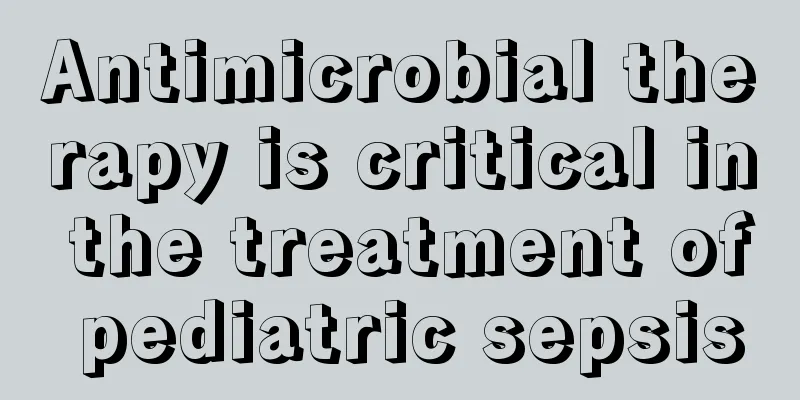Antimicrobial therapy is critical in the treatment of pediatric sepsis

|
Generally, the normal body temperature of children is between 36.5 and 37.5. If it is higher than this temperature, it is a fever. If it is a high fever, you must be alert. Many diseases have the symptom of high fever, such as pediatric sepsis. The most important treatment for pediatric sepsis is antibacterial. 1. Antibacterial treatment Most children with sepsis can recover with active treatment, but some children who are young, have poor nutritional status, are not treated in time, or whose pathogens are not sensitive to antimicrobial drugs often have a poor prognosis. The main pathogen causing sepsis is bacteria, so the use of antibiotics is the main means of treating sepsis. When the pathogen is unknown, drugs can be selected based on the bacterial invasion route, age of the child, clinical manifestations, etc. Broad-spectrum antibiotics or combination of drugs are usually used. Once the pathogen is identified, adjustments can be made based on culture and drug sensitivity test results. Long-term use of broad-spectrum antibiotics can lead to secondary fungal infections. 2. Fever? Beware of sepsis! Sepsis refers to a systemic inflammatory response syndrome caused by infection. Sepsis has a relatively low mortality rate in children compared with adults, but remains a leading cause of death in children admitted to advanced intensive care units (ICUs) in developed countries. The main pathogen causing sepsis is bacteria, and others such as viruses, fungi, mycoplasma, and parasites can also cause it. However, not all children with sepsis have positive blood culture results for pathogenic microorganisms. 3. Children with high fever should seek medical attention promptly 1. When you press the skin with your fingers, small purple dots appear on the surface and do not fade (turn white); 2. Unable to take in fluids and showing signs of dehydration; 3. Pale or gray skin, or spots, and low skin temperature; 4. Continuous pain occurs; 5. Drowsiness or difficulty waking up, appearing weak; 6. Neck stiffness; 7. Convulsions caused by fever occur; 8. Continuous confusion or unconsciousness; 9. The limbs cannot move normally; 10. Difficulty breathing; 11. Continuous crying. |
<<: Nursing and complications of coronary heart disease, attention should be paid to methods
>>: Drinking soy milk makes you fart a lot, it turns out this is because
Recommend
Why do you get herpes, what are the causes of herpes
Herpes is a common skin disease, and viral infect...
What are the benefits of vitamin E plus honey
Vitamin E plus honey has many benefits and values...
6 simple tips to remove shoe odor in winter
The odor from shoes and socks that have been worn...
How long does it take for a ligament to be stretched
Effective exercise can bring vitality to people a...
What are the dangers of not treating colorectal cancer?
Colorectal cancer brings a lot of troubles. Many ...
At what temperature is formaldehyde released
Formaldehyde is usually released only under certa...
Will brain cancer cause facial swelling and pain?
It is recommended that patients go to a regular t...
What should I drink if I have trouble sleeping
Many diseases are very common in life, and poor s...
Is laser lithotripsy harmful to the kidneys?
Many people have heard that laser can break up st...
Can lung cancer be treated with interventional therapy? Yes
Lung cancer can be treated with interventional me...
What is the reason for swollen earlobes
Everyone should have an earlobe on their ear, and...
Is it okay to sleep with your head in your hands
Everyone's sleeping posture is different depe...
Is it serious to have two hamartomas on the kidney?
Whether having two hamartomas on the kidney is se...
What are the ways to prevent testicular cancer
Testicular cancer is a common cancer that occurs ...
How to store grapes for a long time
Grapes are a fruit that is loved by both adults a...









